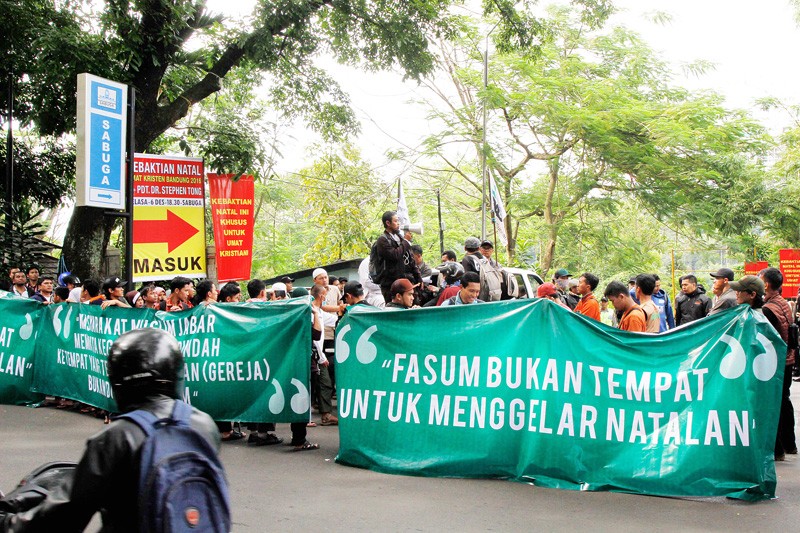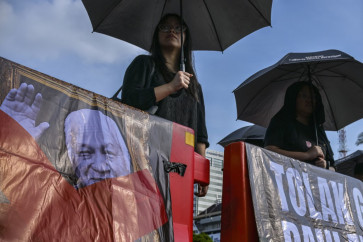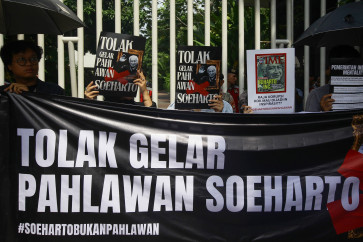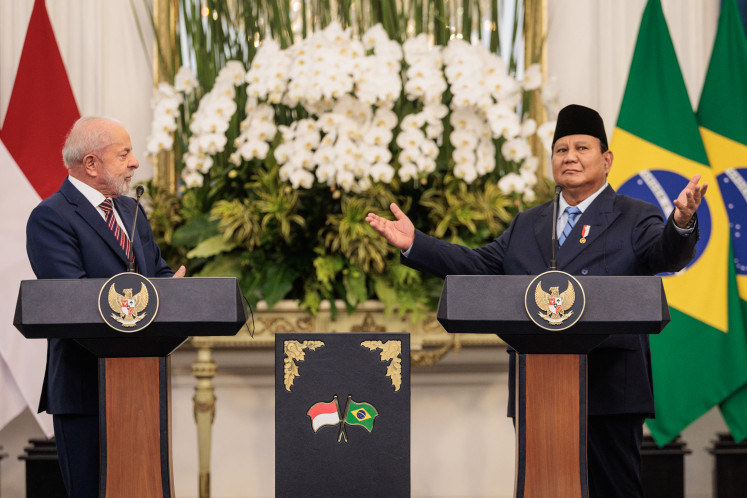Popular Reads
Top Results
Can't find what you're looking for?
View all search resultsPopular Reads
Top Results
Can't find what you're looking for?
View all search resultsGovernment demands MK settles religious column plight
Change text size
Gift Premium Articles
to Anyone
H
aving admitted to an error while relaxing a civil registry requirement for native-faith followers, the government is seeking a resolution from a conservative-leaning court, which has been under fire for calling adultery the root of social ills.
President Joko “Jokowi” Widodo’s administration, which had earlier revised Law No. 23/2014 on local administrations to enable citizens to leave the religion column blank on identification and family cards, asked the Constitutional Court (MK) on Tuesday provide constitutional grounds for the religion section to include minority groups.
A group of people of local faiths have petitioned to abolish the court provision, saying that leaving the column blank causes more problems.
Leaving the column blank has caused complications in registering marriages, obtaining identification cards and joining the military.
Representing the government in a hearing at the court Widodo Sigit Pudjianto, head of the legal department at the Home Ministry, told the bench of justices that the provision was introduced to end long-time predicaments that the followers had to encounter in having to choose one of the six recognized religions.
“The previous situation of native faiths not being recognized as religions has caused many native faith believers to be forced to choose one [already] recognized religion or have no identification card at all,” he said.
The MK has been known for its conservative tendencies in recent cases.
Six years ago, in a decision many deemed based on fears of a public backlash, the MK ruled to uphold the Blasphemy Law although many expert witnesses agreed that the law, which appeared to be used as legal grounds for discriminatory actions against minorities in the country, was problematic.
Last year, the court also rejected a judicial review of two articles in the Marriage Law, maintaining its current provisions on the minimum age requirement and interfaith
marriage.
The court maintained the law’s Article 7 that sets 16 years as the minimum age for marriage for women on the grounds that there is no guarantee that if the age requirement was increased to 18, as demanded by the petitioners, it would reduce divorce rates and solve health and social problems.
In a hearing pertaining to a judicial review petition to outlaw sex outside of marriage, justice Patrialis Akbar said he believed sex outside of marriage was a crime, even if it was practiced by an unmarried couple, as such practices disadvantaged women.
Being a loyal follower of the traditional Sunda Wiwitan faith from Kuningan regency, West Java, Euis Kurniasih said the court could ease her troubles by registering her marriage.
Euis, who has been married since December 2014, faced numerous hurdles in processing her registration, ranging from prolonged bureaucracy matters to repeated rejections by authorities because she practiced a belief that was not recognized by the state.
“We invited civil registration officials to our wedding and our elders have also approved the marriage, so it should not be complicated. The state’s responsibility is only to register our marriage,” Euis said.
Pagar Demanra Sirait, a follower of the native faith Parmalim in North Sumatra, echoed the same hope.
He was forced by his company in Medan to write in one of the six major faiths on his identification card. If he left the column blank, he would be told to quit.
“I offered to write ‘native faith follower’ instead, but they refused to permit that. I quit my job because I did not want to choose one of the six official religions,” Pagar said.










